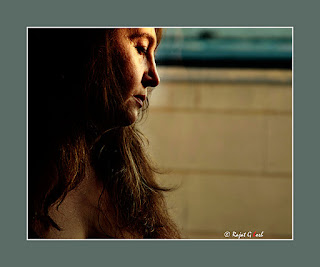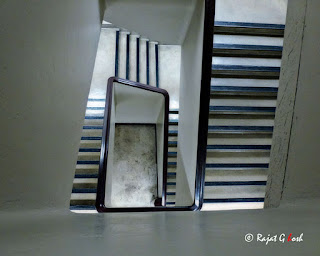
Went to Arizona, for thanxgiving , loads of food , and a excellent drive ,


kids are the best negotiators
Reframing: look at the bigger picture, zoom out, n realize there is a bigger picture.
If u are fighting over a piece of pizza, zooming out u realize there are other slices they’re that u could work towards
Ask: why
Why not
What if
What would you advice
Ask open-ended questions
E.g.: don’t ask if policy can be changed, ask how can it be changed?
Ask questions on what makes the deal fair
We deal with
Stonewall
Attack
Trick
How do u deal with these?
a- Ignore the stonewall (though do test it, n then ignore it) if it is real issue the other will mention it over and over,
b- Renegotiate the stonewall as an aspiration.
When Attacked-
a- deflect attack, by ignoring the attack,
b- reframe the attack, that is not against you but against the problem at hand
c- Reframe attack, n deflect it by changing it into a joke
d- Reframe the issue at hand; let go of the past wrong, n work on the issue at hand.
Tricks
Ask clarifying questions - why? How did you get to it?
What’s your profit margin?
If they are talking too fast - be careful
Look for body language, being same as what they are saying
Make reasonable request, if they don’t agree then they are probably tricking you.

Lighting Objectives
Visibility
Naturalism
Composition
Emphasize on: separation
Depth
Graphic effect
Mood- the key light sets the mood
Fill light sets the contrast ratio.
Lighting strategy
Block
LightRehearse
Tweak
Shoot
Think about where will the key light be?
What’s the source, what’s the motivation?
Decide on camera angle before you lock the look
Lighting ratio? How much contrast
Key light should ideally be exposed normal, n it establishes the mood of the shot
Ratios are like 4: 1, 8: 1, and 16: 1 so on
Background light: it sets tones, and create context for the environment, it is used solely to light the space around the subject.
Practical’s: used as motivation within the space or as a prop. Practical’s are seen in the scene that you are shooting sometimes, like lamp. Campfire

Met a friend, been almost 13 yrs. since we saw the other, it was like a breath of fresh air, after years and years of just thinking of meeting up it finally happened
People we connect with, even with passage of time there is no change when we meet we pick up where we left off, n take it further, as if time never existed between us, the power of the mind it creates it all

Video responds better in low light, while film works better in and more forgiving while overexposed.
Contrast can be controlled at various levels
At camera level
Choice of film stock
Lighting style
Production design
Filters on camera
Digital camera setting (not raw)
Pan flasher
At lab level by:
Pre or post flashing
Push / pull processing
Special lab process
Digital manipulation
Tiffin makes Dfx filters to show how the film will look after it is processed
Basically there is no color film; it just has 3 layers of dye- couplers
So there is:
Oxidation – reduction
Color couple
Color dye
Metallic silver
Bleaching
Fixing
Bleach bypass looks like it has pastel colors, and rich blacks this is when the positive has been bleach bypassed.
If Bleachbyass is done on the negative stage, the film has bright shiny whites, almost glowing kinds, and some colors are very saturated, like red.
E.g.: amorous peros the movie.
Cross processing gives more color shift , n higher contrast.
Timing: is process of evaluating the negative scene by scene, and making the color and density adjustment in order to strike a good print.
It established printer time based on RGB values; on a 50-point scale, where 8 points equal one stop of light.
If perfect it should read: 30 - 30 - 30
Printing up (brightens) is a low number so needs to be printed up
Printing down (dark) is a higher number
Higher the number: its overexposed
Lower the number it is underexposed.
Colors and density must always balance between the 3 numbers L 30 – 30 – 30
In medicine color brightness and contrast can be manipulated more accurately
Usually a feature needs approx. 12000 feet of stock
Sleepy hollow had bleach bypass at positive stage
Amores peros had bleach bypass at negative stage
Black hawk down
Amelia
and house of flying daggers had major Di to saturate colors